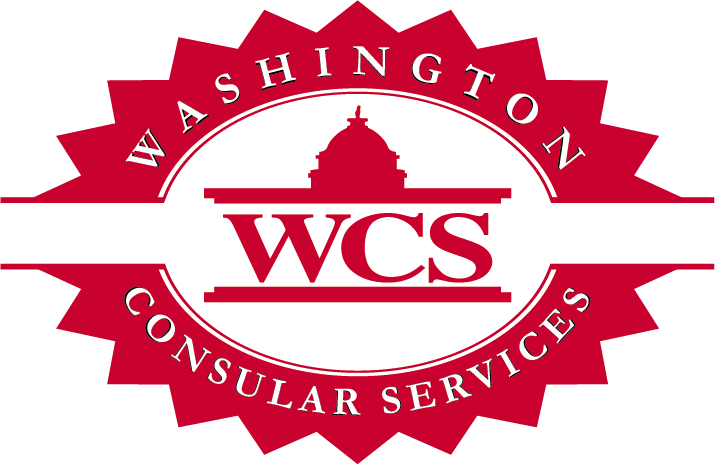It was a promising moment when Melissa Ford, Secretary (Diplomat Lawyer) from the Permanent Bureau of the Hague Conference on Private International Law and Head of the Transnational Litigation and Apostille Division, agreed to meet with us. The topic of choice for Melissa, as well as for all of us at WCS, was electronic apostilles and the building momentum for these so-called e-Apostilles, which make up one of the two components that is known as the electronic Apostille Program (e-APP). The other component is the e-Register which is an online register of issued Apostilles. The ultimate goal of e-Apostilles is to catapult the Apostille Convention, concluded in 1961 by the Hague Conference on Private International Law (HCCH), into the digital age.
What exactly is the HCCH?
The origins of the HCCH, as an organization, stretch back to 1893, when a group of prominent international lawyers came together to discuss a range of cross-border legal issues. These lawyers were working towards the unification of some of these laws that were relevant to the cross-border issues (namely, private international laws). This work grew into what is now a thriving permanent intergovernmental organization, supported by a Permanent Bureau. But the Apostille Convention stands as a major contribution of this sometimes-overlooked organization, based in the Netherlands.
More about Apostilles
The apostille process, for stamping and validating official documents, eliminates the oldfashioned and cumbersome way of doing things. For Contracting Parties to the Apostille Convention, the complicated, multi-step process involving, not only government authentication but approvals from embassies and chambers-of-commerce is no longer required.
The streamlined apostille process, did not, however, happen overnight; far from it. Each sovereign nation had to sign the Convention if it wanted to make use of its provisions. And only if two countries—the document host and the recipient—were treaty members—could an apostille be used to replace the old multi-step process of embassy legalization.
And so the first “Contracting Parties” were in Western Europe.
But the U.S. did not join until October 15, 1981—fully twenty years after the Convention
was concluded.
India did not enter until 2005.
And Brazil, today one of the most frequent users of e-Apostilles, did not join until 2016. Some countries, including major markets, joined in the last few years: China, Canada, Indonesia, Singapore, Saudi Arabia—all of which are Contracting Parties today. While the Apostille Convention greatly simplifies the process for authenticating pharmaceutical documents, for example—also criminal background checks, birth certificates, marriage certificates, diplomas, powers-of-attorney, and more—delivery of paper documents was most often still required. Today, the goal is an end-to-end digital process, and we had the pleasure of discussing this topic with Melissa Ford, the HCCH’s key advocate and coordinator of e-Apostille implementation.
What do you see as the main benefits of e-apostille?
The future of e-Apostilles aligns with other services governments are providing to their citizens. More and more often, the underlying public documents are being issued digitally. It really doesn’t make sense to place a physical certificate on a digital document. It is worth noting that e-Apostilles have the same value as paper Apostille, and the information recorded in an e-Apostille is the same—it needs to comply with the 10 standard items of the Apostille certificate. This is set out in the Practical Handbook:
https://assets.hcch.net/docs/a19ae90b-27bf-4596-b5ee-0140858abeaa.pdf
The e-Apostille is able to be accepted in the same manner as the paper Apostille in any Contracting Party where the Convention is in force.
How advanced is technology currently available to implement e-apostilles?
We don’t monitor the particular technology that is used. What we do is try to understand what the environment might be like for Contracting Parties. How do they issue public documents? Are they paper; are they electronic? We don’t monitor specific IT, but we certainly facilitate the IT discussions by matching like Contracting Parties together. For example, if a Contracting Party only issues digital public documents, we will try to match them with another Contracting Party with a similar environment so their IT specialists can speak to each other about implementation if we are asked to provide such assistance, of course.
Do you foresee many new players developing technologies that will be acceptable?
The design roll-out and the use of IT developers and technologies is a matter for the Contracting Parties. Some use in-house technologies, others go outside–so there are a range of options and that is part of the beauty of the e-APP, it is flexible. The important thing to note is that only a Competent Authority can issue an Apostille (electronic or paper version).
Why has the Hague Convention chosen a purely agnostic approach to technology development?
The agnostic approach is a positive thing. Different environments will need different technologies. So we’ve been very flexible on that. Some Contracting Parties want to develop the capability in house. Others might need to go out and get some external advice or source developers.
Which are the top countries using e-Apostilles?
We have a couple of different meetings we organize from time to time, and one is a very large meeting which is known as a Special Commission. We try to capture data from Contracting Parties in advance of the Special Commission. However, one of these meetings has not been held since 2021. But we know thousands of e-Apostilles are being issued based on reports from specific Contracting Parties.
In terms of Apostilles in general (and speaking here only about paper Apostilles) China, as a new Contracting Party, has really changed the data. China has not begun issuing eApostilles, but China has really altered the sheer numbers of Apostilles being issued each year.
The UK, as is sometimes thought, was not the first country to issue e-Apostilles. Spain has been issuing e-Apostilles since 2008. The UK started to develop the capability to issue eApostilles after returning from one of our international meetings on the e-APP in Brazil in 2019.
It’s difficult to speculate on the number of e-Apostilles, because we don’t have recent data. But data capture is something we’re keen to keep working on.
How do Contracting Parties assign the competent authorities for apostille issuance?
How and which agency is designated as a Competent Authority is a matter for Contracting Parties. For example, Brazil has a decentralized system when it comes to issuing Apostilles. You can see who the Competent Authorities are for each Contracting Party on our website.
How do you assess the risk of rejection for documents submitted with e-Apostilles?
The rejections have been few in comparison to the amount of e-Apostilles issued, and in those cases, it is more often related to issues with the underlying document, not with the eApostille itself.
Why has the timeline been uneven, for countries to join the Convention?
Sometimes it can be internal structures and legal arrangements that need to be considered. For example, some federal countries have particular requirements. Or countries with huge populations— sometimes the issue might be how are they going to roll this out? There are many different considerations. Some of these newer Contracting Parties have been considering joining the Convention for a number of years. Once a State deposits it instrument of accession to the Convention, the clock starts ticking. The Convention will enter into force in a particular time frame. And so States need to be in a position to accept Apostilles and issue Apostilles. Systems and training should be done in advance—it can just take time. But what I would mention is that many States have joined this Convention
and continue to do so.
Do you see a gradual process of implementation, or will e-Apostilles gain growing momentum?
There may not be a huge shift in one year, but if you look at three to five years, I would like to say that e-Apostilles will be a “no-brainer”, particularly for countries where the underlying public documents are digital. For Contracting Parties with a very sophisticated digital environment, issuing paper Apostilles in that kind of environment is not efficient. The beauty of the future is that e-Apostilles, and the e-APP is not mandatory to implement, but it supports evolving digital priorities. I see the future to be very bright. Here at the Permanent Bureau where I work, the e-APP keeps us very busy. The busiest part of our work in connection with the Apostille Convention is States looking to implement the e-APP.
At the Symposium I attended in Montana in 2024, I showed a graph with an upward tracking line of e-APP implementations over the years. Things are going up on an ongoing basis for the e-APP. We are thrilled about this!






